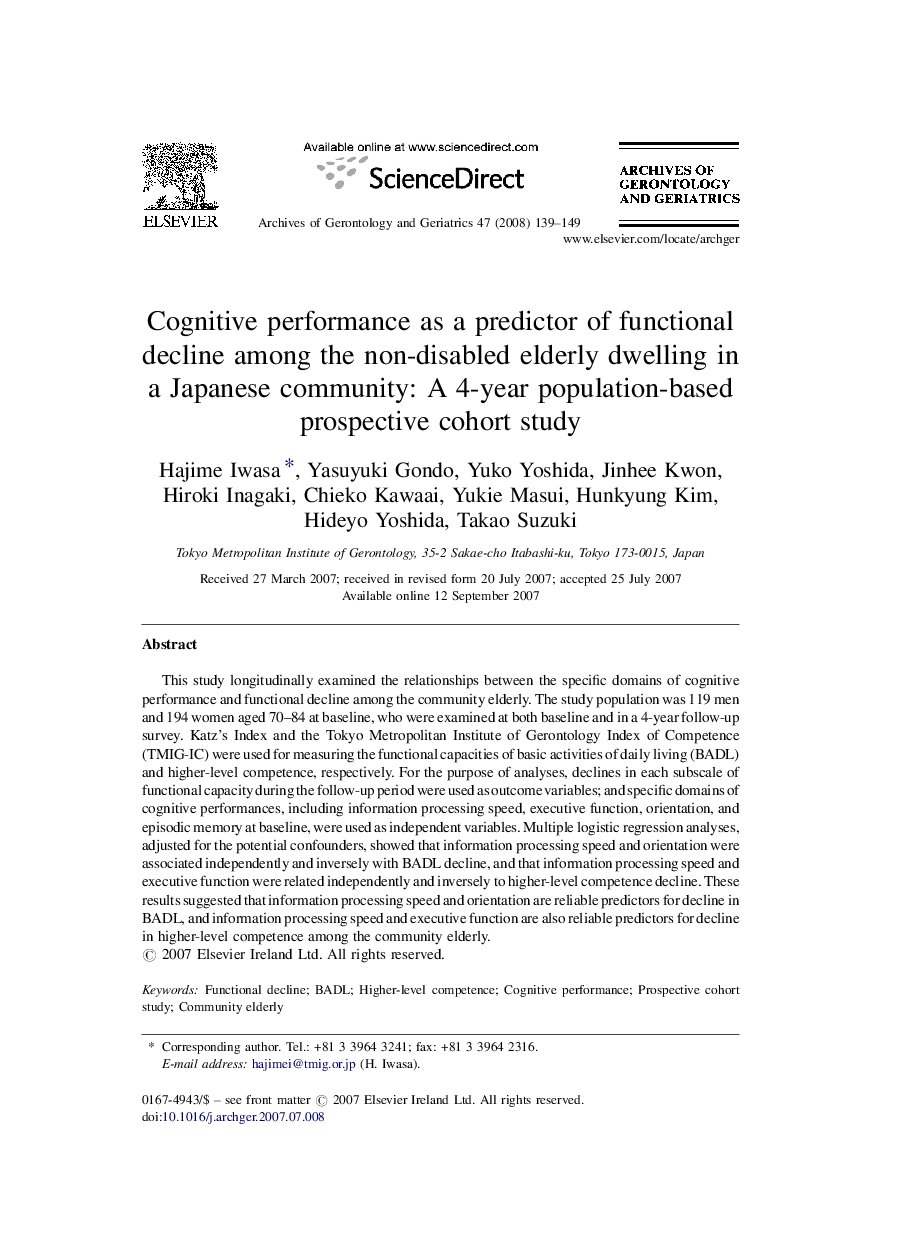| Article ID | Journal | Published Year | Pages | File Type |
|---|---|---|---|---|
| 1904207 | Archives of Gerontology and Geriatrics | 2008 | 11 Pages |
This study longitudinally examined the relationships between the specific domains of cognitive performance and functional decline among the community elderly. The study population was 119 men and 194 women aged 70–84 at baseline, who were examined at both baseline and in a 4-year follow-up survey. Katz's Index and the Tokyo Metropolitan Institute of Gerontology Index of Competence (TMIG-IC) were used for measuring the functional capacities of basic activities of daily living (BADL) and higher-level competence, respectively. For the purpose of analyses, declines in each subscale of functional capacity during the follow-up period were used as outcome variables; and specific domains of cognitive performances, including information processing speed, executive function, orientation, and episodic memory at baseline, were used as independent variables. Multiple logistic regression analyses, adjusted for the potential confounders, showed that information processing speed and orientation were associated independently and inversely with BADL decline, and that information processing speed and executive function were related independently and inversely to higher-level competence decline. These results suggested that information processing speed and orientation are reliable predictors for decline in BADL, and information processing speed and executive function are also reliable predictors for decline in higher-level competence among the community elderly.
